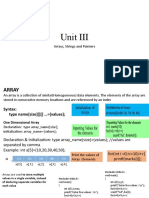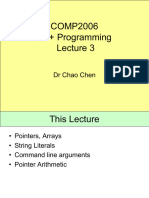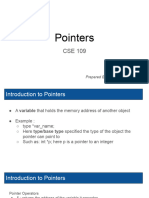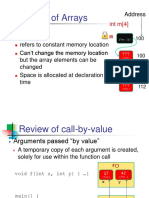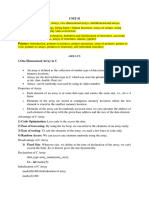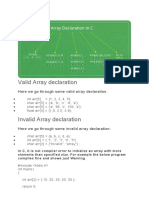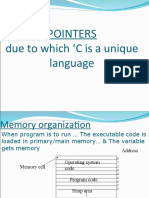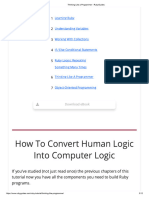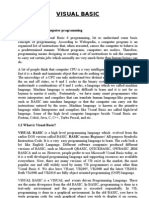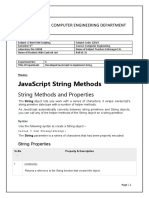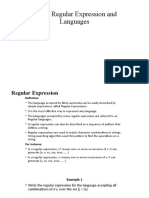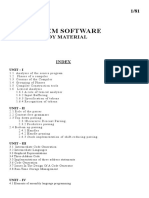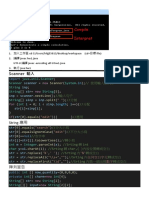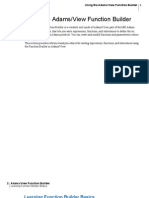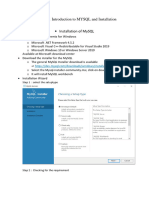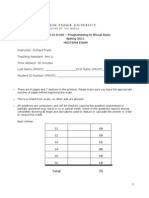0% found this document useful (0 votes)
71 views50 pagesSlide Set 6 Strings and Pointers
The document discusses pointers and strings in C programming. It covers topics like defining and manipulating strings, understanding computer memory and accessing it via pointers, pointers to arrays, dynamic memory allocation using pointers, and the drawbacks of pointers like potential for bugs and memory leaks. Examples are provided to demonstrate various pointer operations on strings, arrays, and dynamically allocated memory.
Uploaded by
goku dukeCopyright
© © All Rights Reserved
We take content rights seriously. If you suspect this is your content, claim it here.
Available Formats
Download as PPTX, PDF, TXT or read online on Scribd
0% found this document useful (0 votes)
71 views50 pagesSlide Set 6 Strings and Pointers
The document discusses pointers and strings in C programming. It covers topics like defining and manipulating strings, understanding computer memory and accessing it via pointers, pointers to arrays, dynamic memory allocation using pointers, and the drawbacks of pointers like potential for bugs and memory leaks. Examples are provided to demonstrate various pointer operations on strings, arrays, and dynamically allocated memory.
Uploaded by
goku dukeCopyright
© © All Rights Reserved
We take content rights seriously. If you suspect this is your content, claim it here.
Available Formats
Download as PPTX, PDF, TXT or read online on Scribd
/ 50

